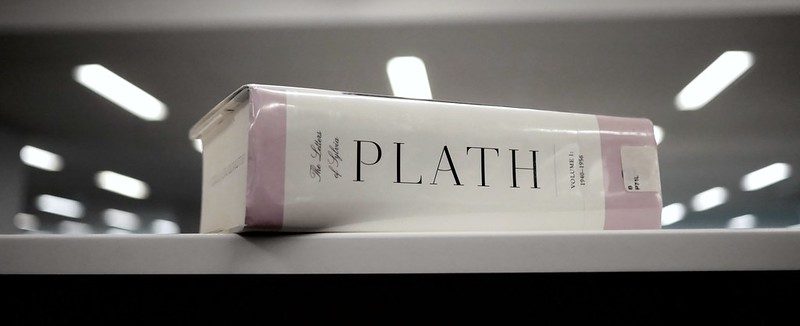Why Sylvia Plath’s fig tree analogy isn’t as overwhelming as it first seems
While the summer holiday has always been a period of relaxation, a break from the stress of term time, this summer felt different. It is my last one as a student, and I must admit that I find myself at the end of it rather suddenly.
One of my summer reads has been The Bell Jar by Sylvia Plath. I have always been a particular fan of her writing – having loved her Unabridged Journals and any poems I had stumbled upon – but for some reason I had not gotten around to reading her most known piece until now.
Plath uses a fig tree as a metaphor for the daunting prospect of choosing where you want your future to be heading.
The plot consists of protagonist Esther Greenwood, a 20-year-old college student who wins a contest to go to New York City on a paid internship. Throughout the book, we follow her as she struggles to find happiness within the world, stifled by the possibilities available to a woman in the 1950s. She wants to be a poet, and the world wants her to be a mother and housewife. Her mental health declines further as you continue to read, and you find yourself with front row seats to Esther’s breakdown and the bleakness of her reality.
I came across the notorious ‘Fig Tree’ paragraph a third of the way into the book. It is quite possibly one of her most well known sections of writing, and has recently gained renewed traction on TikTok, with over 50 thousand people posting videos to an audio version of it.
I find myself standing beneath my own metaphorical fig tree. I want to be so many things.
Plath uses a fig tree as a metaphor for the daunting prospect of choosing where you want your future to be heading. She depicts how she sees her life branching out before her like a fig tree, and how at “the tip of every branch…a wonderful future beckoned and winked”. However, she finds herself unable to decide on just one fig or one future, as it would mean she did not get to choose the others. She “saw [herself] sitting at the crotch of this fig tree, starving to death”, missing all the opportunities presented to her and instead watching them “wrinkle and go black, and, one by one…[plop] to the ground”.
I found this paragraph particularly striking. The current stage of my life: twenty years old and knowing that in a year’s time I will be out of university and faced with the future, means that I couldn’t have chosen a more relevant time to read it, and I am sure many of you will feel the same.
I find myself standing beneath my own metaphorical fig tree. I want to be so many things. Numerous possibilities swirl around in my head, and I am unable to settle on one. A journalist, a teacher, a writer, the list goes on. Each option sounds as appealing as the next, and so I find myself stuck, not moving toward one for fear of missing out on another. My own figs fall by my feet before I can reach out and pick them.
I first read the ‘Fig Tree’ analogy long before I read The Bell Jar in its entirety, and I had felt as if it described my own plights perfectly, however reading it within the context of the book, it is clear I am faced with a different dilemma than Esther.
The number of possibilities we have should not be daunting, but a wonderful thing. We have the time to explore them.
Society dictated her possibilities. She feared motherhood and marriage would ruin any chance of her having a fruitful future. All that was expected of women in her time was domesticity, and she did not want to fall into that, knowing the unhappiness that would follow for her. However, I am simply faced with too many options I would love and cannot make myself choose. After realising this difference, my anxieties for the future seem far less dire.
There is this thing that begins to happen in your twenties, where you start to see other people’s lives move at a different pace than your own. It will seem like everyone but you has their lives figured out. Sure, one or two people might do, but I can guarantee the majority do not.
The number of possibilities we have should not be daunting, but a wonderful thing. We have the time to explore them; we can figure it out as we go, unlike Esther Greenwood.

Comments (4)
And the fact that now I have just that many hobbies is so dear to me. I know a bit about botany, a bit about maths, I can paint and write and I feel alive with the possibilities.
Thanks for sharing your positive thoughts on the fig tree analogy. The potential of multitudes just makes you feel the metaphor is not as depressing.
I love the Fig Tree Analogy in The Bell Jar, not only because it’s a brilliant piece of imaginative writing, but also because it’s so relatable. I think we all feel at some point that we’d like to everything. I was 16 or 17 when I wanted to be so many things all at once—a botanist, a painter, a writer, a brilliant mathematician. There is beauty in finding that your desires and your fears are shared by others.
Thanks for writing this, I’ve just finished my degree and am about to travel across the world to get a tattoo of the fig tree, I feel like I’m at a point where I can see the figs ripening and I’m excited and scared of what’s to come.
another fab read em x